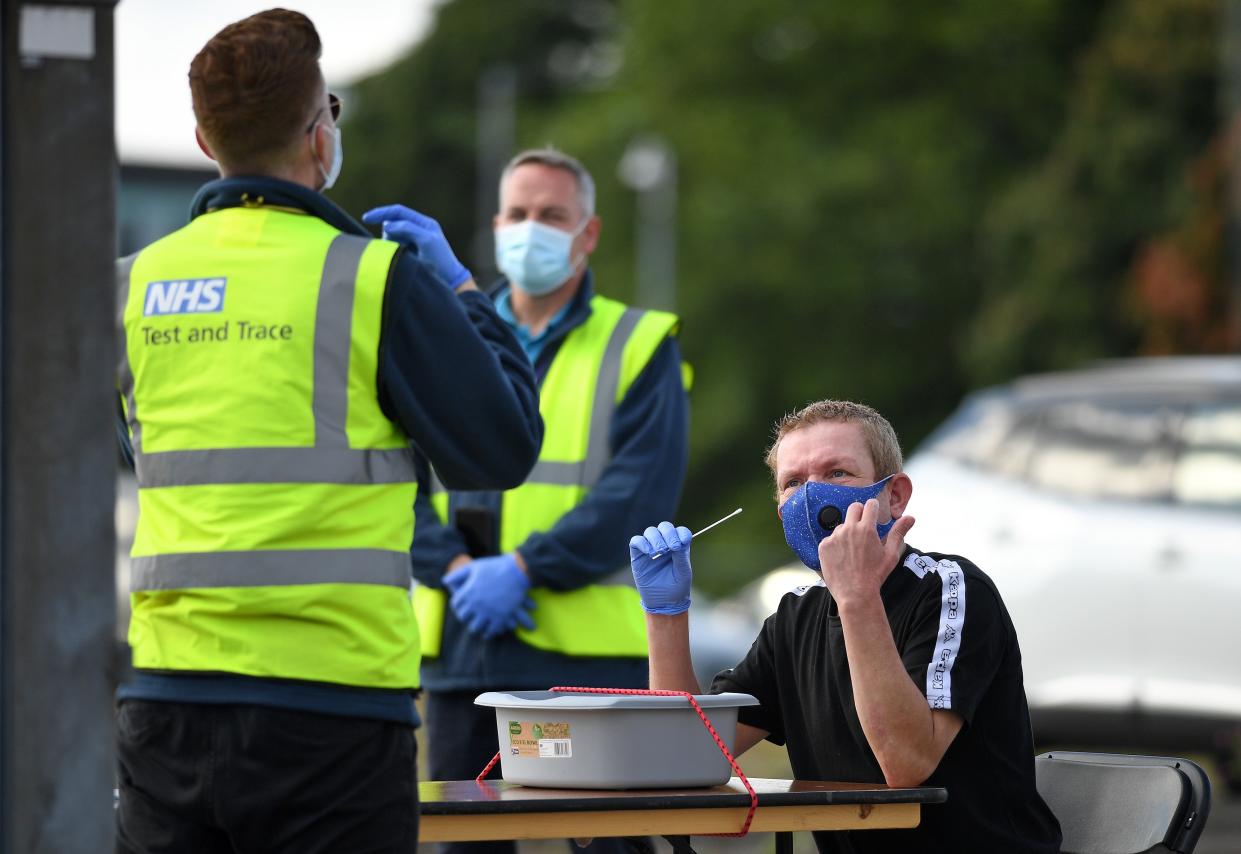Coronavirus infection rates more than double in hardest-hit parts of England as Bolton cases soar

Coronavirus infection rates have more than doubled over the course of a week in parts of England, soaring to more than 200 per 100,000 people in the hardest-hit region.
A total of 506 new cases were identified in Bolton in the week to 13 September, bringing the infection rate to 204 per 100,000 — up from up from 152 the week prior.
The Royal Bolton Hospital urged people to stay away from its emergency department unless they have a life-threatening illness or injury as surging cases begin to translate into rising hospital admissions.
The facility’s medical director suggested that failures in the national testing scheme were responsible for the surge of people turning up to the hospital seeking tests, as health bosses in other cities offered similar pleas not to flood A&Es with requests for tests.
Rolling seven-day rate of new cases of Covid-19, based on government testing figures, show that Bolton and 11 other areas now have weekly rates between 100 and 200 cases per 100,000 people, including Liverpool where the rate has jumped sharply from 56 to 106.
Oadby & Wigston has the second highest rate, up from 52 to 136, while Hyndburn is in third place, where the rate has risen from 64 to 132.
Cities recording sharp increases in their seven-day rates include:
Liverpool (up from 56 to 106, with 530 new cases)
Leicester (up from 60 to 89, with 318 new cases)
Salford (up from 75 to 89, with 232 new cases)
Newcastle upon Tyne (up from 51 to 64, with 194 new cases)
New daily cases have again risen to levels not witnessed since May on each day since 6 September, government figures show, with nearly 4,000 new coronavirus cases identified on Wednesday.
And with the national testing system in disarray, there are widespread reports of people being unable to access tests across the country, meaning those among them who are infected will not yet be reflected in official figures.
In Lancashire, it was announced on Wednesday that operating hours at walk-in testing centres would be reduced in Burnley, Hyndburn, Preston and Pendle — the first three of which are among England’s worst-hit areas in terms of infection rates — after people from outside local areas joined the queues.
Local officials said that, since schools returned, there had been an increase in demand at the testing sites, where locals without symptoms had been encouraged to get tested to monitor infection levels in the designated areas of intervention.
Tests were in similarly short supply in other high-risk areas on Wednesday, with the Press Association finding slots were offered at just one of the 10 local authorities with the highest Covid-19 infection rates.
Despite no slots showing up for Bolton residents, those trying to book a test in Hyndburn, which has the seventh-highest rate, were simultaneously being offered a walk-through in Bolton, which is nearly 20 miles away.
In addition to the Royal Bolton Hospital, health bosses in Leeds, Plymouth, Derby and Liverpool all told patients they must wait for slots at specialist centres or request home-testing kits, rather than arriving at A&E — despite none being available.
And amid “rapidly rising” cases in the North East, health secretary Matt Hancock is set to announce “additional, temporary” restrictions on Thursday in a bid to prevent the need for a full lockdown.
The Chronicle Live website reported that measures would include a 10pm curfew on pubs, restaurants and other licensed premises.
Facing a grilling from MPs on the Commons Liaison Committee on Wednesday, Boris Johnson warned that the rapidly rising numbers of cases would be followed by a “proportionate” spike in deaths.
The prime minister said the outbreaks detected among younger people in recent weeks are now spreading into older generations with greater vulnerability to the disease.
Additional reporting by PA
Read more
Covid: UK does not have enough testing capacity, Boris Johnson admits
Coronavirus: Rising UK cases likely followed by spike in deaths, Boris Johnson warns
Coronavirus: Testing ‘chaos' could force widespread school closures, teachers and unions warn


